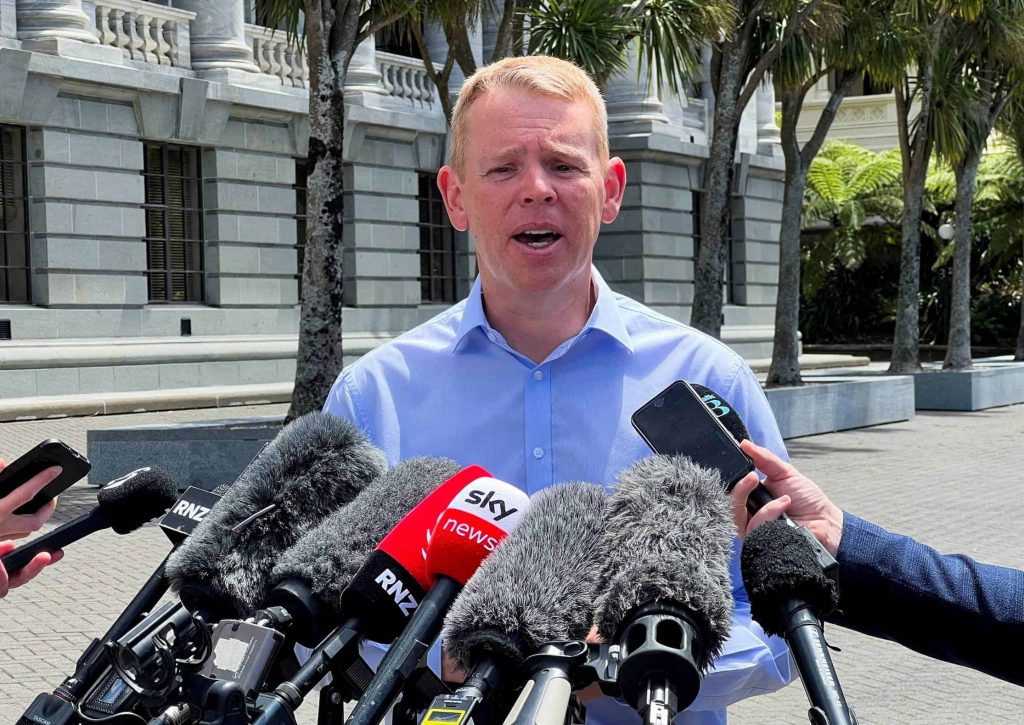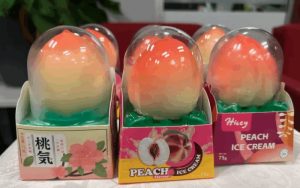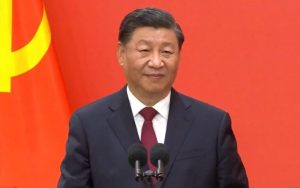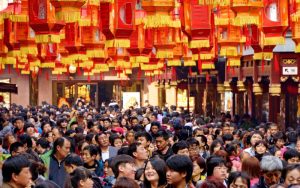
Having struggled to reduce its trade reliance on China, New Zealand is now trying to diversify within it.
New Zealand Prime Minister Chris Hipkins has begun a six-day visit to his nation’s biggest export market, seeking to drum up demand for a wider array of goods and services than the traditional fare of milk, logs and lamb. He is due to meet with Chinese President Xi Jinping and Premier Li Qiang while in Beijing, and will also attend a World Economic Forum event in Tianjin.
Hipkins leads a 29-strong delegation comprising the trade and tourism ministers as well as executives from New Zealand’s largest companies, such as Fonterra Cooperative Group and Air New Zealand. Also represented are firms from sectors hoping to win China’s business such as gaming app developer PikPok and fitness workout designer Les Mills International.
“The makeup of the delegation reflects our objective of diversifying the breadth of our export offering,” Hipkins said ahead of the trip. “The export of traditional goods like dairy, meat and wood to China remain important, but it’s critical we also throw our support behind emerging sectors such as gaming and health and wellness.”
China plays a dominant role in New Zealand’s economy, buying 28% of its goods exports worth 21 billion New Zealand dollars ($13 billion) a year. China’s economic importance to New Zealand began to grow after the nations entered a free-trade agreement in 2008, the first China signed with a developed country. It overtook Australia as New Zealand’s biggest trading partner in late 2013, when both nations had about a 19% share of goods exports. Since then, Australia’s slice has dwindled to 12%.
China’s economic expansion and increasing middle-class wealth has stoked demand for milk powder and building materials, driving a surge in demand for New Zealand dairy and log exports.
China is the single biggest market for New Zealand forest products, buying more than 60% of annual shipments. It takes 40% of meat exports. While the value of dairy exports to China has declined recently amid a drop in global prices, it remains the biggest buyer.
Hipkins also wants to rekindle Chinese interest in New Zealand as a destination for holidays and education as those sectors recover from the closed border during the pandemic.
Tourism once exceeded dairy as New Zealand’s biggest export. Operators are hoping arrivals from China will get back to the levels they reached in 2019. Airport and tourism company chief executives are in the delegation.
New Zealand is all too aware of the risks in becoming too reliant on China. When Australia annoyed China in 2020, Beijing retaliated by curbing imports from wine to coal to lobsters. But even as Wellington seeks new markets in Europe and Asia, China remains by far its largest customer.
New Zealand is a member of the “Five Eyes” intelligence alliance that includes the U.S., Australia, Canada and the U.K. While generally taking a similar position to its western partners on China, it has tried to walk a more nuanced line, at times choosing not to co-sign Five-Eyes statements criticizing Chinese human-rights violations.
That balancing act was in evidence last week when Hipkins was asked whether he agreed with U.S. President Joe Biden’s description of Xi as a dictator.
“No, and the form of government that China has is a matter for the Chinese people,” Hipkins said.

























